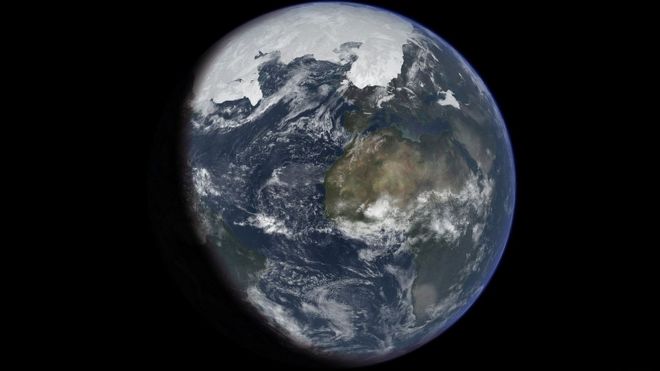The next ice age may have been delayed by over 50,000 years because of the greenhouse gases put in the atmosphere by humans, scientists in Germany say.

Earth has been through a cycle of ice ages and warm periods over the past 2.5 million years
They analysed the trigger conditions for a glaciation, like the one that gripped Earth over 12,000 years ago.
The shape of the planet's orbit around the Sun would be conducive now, they find, but the amount of carbon dioxide currently in the air is far too high.
Earth is set for a prolonged warm phase, they tell the journal Nature.
"In theory, the next ice age could be even further into the future, but there is no real practical importance in discussing whether it starts in 50,000 or 100,000 years from now," Andrey Ganopolski from the Potsdam Institute for Climate Impact Research said.
"The important thing is that it is an illustration that we have a geological power now. We can change the natural sequence of events for tens of thousands of years," he told BBC News.
Earth has been through a cycle of ice ages and warm periods over the past 2.5 million years, referred to as the Quaternary Period.
This has seen ice sheets come and go. At its maximum extent, the last glaciation witnessed a big freeze spread over much of North America, northern Europe, Russia and Asia.
In the south, a vast expanse of what are now Chile and Argentina were also iced up.
No comments :
Post a Comment